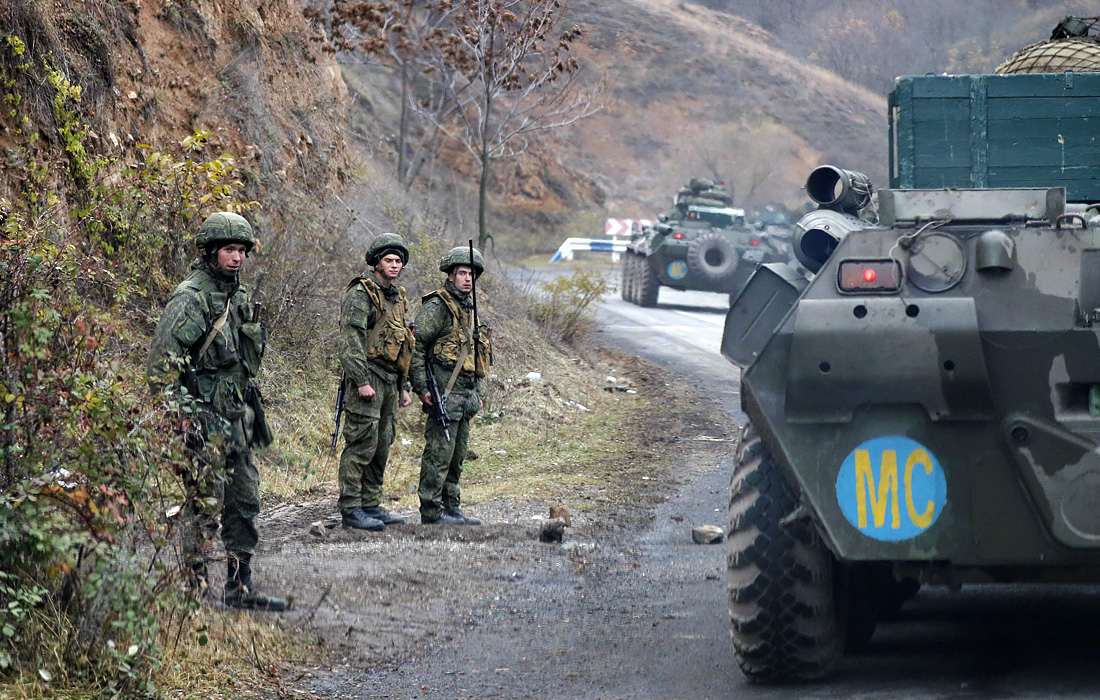
However, the geopolitical context of the processes in Donbas and the South Caucasus is way more important. Thus, peace negotiations in both cases took place on the political platform in Minsk, where Russia was involved. In terms of negotiations on Donbas, Moscow is in fact a party to the conflict, pretending to be a mediator in order to evade its responsibility for the occupation and the sanctions for doing it. Armenia has tried to play the same role in the Minsk Group, assuring its members all these years that it is a matter of settling relations between Azerbaijan and the so-called Nagorno-Karabakh Republic (just like the Kremlin trying to legitimize its accessories in Ukraine’s ORDLO). Nonetheless, the involvement of such states as France and the United States (Ukrainian experts often consider Washington’s participation in the negotiations as an important precondition for achieving peace in the east of Ukraine) has not produced the expected results. It should be mentioned that the Minsk Group of the OSCE was established back in 1992. Only this year’s open military confrontation changed the long-lasting balance of power in the region. Russian diplomats have repeatedly underlined that Nagorno-Karabakh is part of Azerbaijan. Beside this Moscow kept promising support to Armenia, which is a member of the CSTO collective security system initiated by Russia. They sold Russian weapons to both Baku and Yerevan, stimulating further the imminent escalation that actually did happen.
Pashinyan’s rise to power due to a wave of democratic protests led him to the reasonable expectations that democracies would support Armenia in resolving the situation in Nagorno-Karabakh, given the Western powers’ charges against Azerbaijani leader Aliyev and his closest ally Erdogan. However, despite the anti-Russian rhetoric from the Armenian prime minister, he continued to support Moscow in its key positions, such as Armenia’s UN voting on the occupied Crimea and Donbas. Economic dependency on Russia, participation in the joint security projects in the region, the presence of Russian troops in the Armenian city of Gyumri – all this limited Yerevan’s tidal change to the West. On the other hand these conditions let Armenia rely on a significant support hoping for that it will level Azerbaijan’s advantage in the alliance with Turkey. However, Ankara intervened on Aliyev's side, and the the Kremlin just silently witnessed the defeat of the Armenian army, thus teaching Pashinyan a political lesson.
Despite this, the lesson can cut both ways. After all, the events in the South Caucasus undermine the image of Moscow as a reliable ally and the influential player, even at the regional level. This was a direct proof of how quickly the Putin’s regime passes when it encounters a stronger player, in this case, Turkey. That indicates that under the certain circumstances the Kremlin may refuse to support the collaborators in the occupied regions of Donbas. After all, if the obligations under the collective security agreement were so easily neglected to Armenia, what does that mean for those to whom it has no obligations, since they are not a subject of international law?
Unfortunately, the ceasefire agreement signed on November 10, 2020, mediated by Putin, is unlikely to solve the political problem permanently. The period of ceasefire will not last long without a comprehensive peace pact. Despite the Kremlin’s efforts to emphasize its importance in resolving the situation, in fact it will try to maintain its own military presence in the region so as not to be permanently displace by Turkish influence. Therefore, waiting for the return of Azerbaijanis to the liberated territories, Baku will try to detain Armenians there to justify the presence of the so-called Russian peacekeepers. The demand for the latter’s withdrawal will be another signal of the Kremlin’s gradual loss of control over the processes in the South Caucasus.